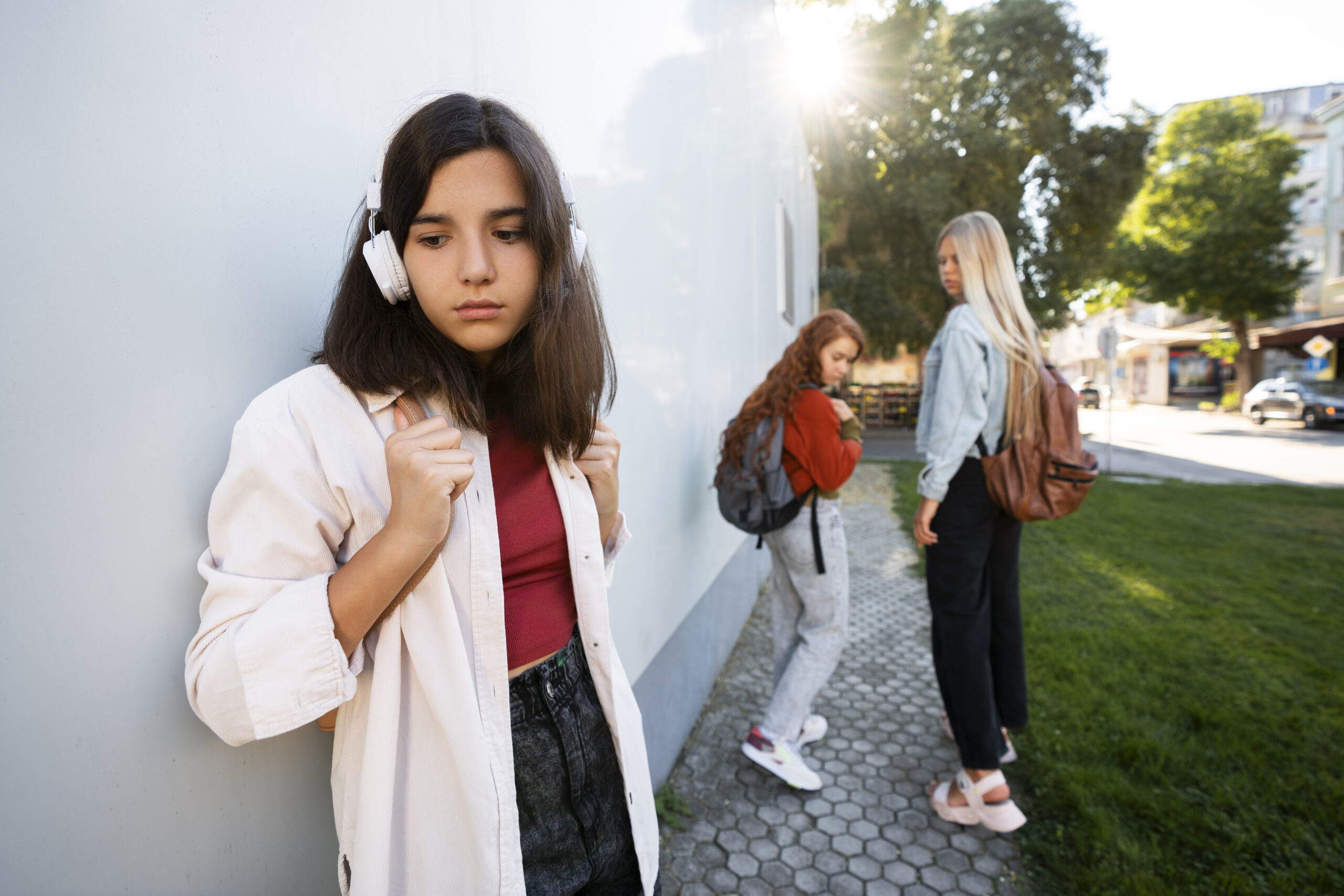Symptoms of Social Anxiety in Teens Find out why smiling has so many benefits!
Adolescence is a period of change, identity formation, and, for some, worry. Social anxiety disorder (SAD) is the most prevalent mental health issue in teenagers today. Recognizing social anxiety symptoms in teens, such as the fear of judgment, embarrassment, or humiliation in social gatherings, can be unbearable. But here’s a hint: something as easy as a smile can become a potent means of overcoming fears. Let’s closely consider social anxiety in adolescents and the way that smiling can positively influence mental health.
Social anxiety disorder is far more than shyness or introversion. It’s a severe and chronic fear of social situations that can disrupt daily life. For teens, this can be especially difficult as they try to manage friendships, schoolwork, and social activities.
Adolescents with social anxiety tend to exhibit a combination of physical, emotional, and behavioral symptoms such as:
Avoidance of Social Situations:
Adolescents avoid attending social events, refuse to talk in class, or do not make friends to avoid making them feel awkward.
Fear of Judgment:
Being too concerned about how other people think, even about small conversations, can be overwhelming.
Trouble Speaking:
Feeling extremely anxious while speaking with classmates, instructors, or even members of one’s family.
Physical Symptoms:
Social anxiety is expressed physically by sweating, nausea, increased heart rate, shaking, or even dizziness in social environments.
Negative Self-Perception:
Harsh self-criticism, low self-esteem, and persistent fear of embarrassment are prevalent.
Overthinking Past and Future Social Interactions:
Socially anxious teenagers overthink previous conversations and worry about future conversations, expecting the worst.
These symptoms can keep teens from enjoying the joys of adolescence and keep them from being able to make strong relationships, succeed in school, or participate in extracurricular activities.
It may seem counterintuitive, but smiling, even when you don’t want to, has incredible psychological and physiological rewards. Smiling is a natural, powerful tool for enhancing mood, decreasing stress, and increasing social interactions.
Smiling is more than a reflex; it has a chemical effect on the brain that can reverse anxiety and stress. Here’s why:
Releases “Feel-Good” Hormones:
Smiling releases neurotransmitters such as dopamine, serotonin, and endorphins to counteract stress and bring about happiness.
Reduces Stress Levels:
Research indicates that even obligatory smiles can lower heart rate and decrease blood pressure under stressful conditions.
Promotes Positive Social Interaction:
Smiling makes people look more friendly and likable, reducing the intimidation of social interactions.
Strengthen the Immune System:
Regular smiling has been shown to enhance immune function, which can counteract the adverse effects of chronic stress on health.
Enhances Confidence:
Teens who smile send out a message that they are self-confident, even when they may not be feeling that way at first. This improves social experiences in the long run.
Extends Longevity:
Some studies indicate that individuals who smile frequently live longer, healthier lives.
For teens with social anxiety, more smiling in life can be a quick and effective way to manage. Here are some tips to make it become a reality:
1. Smiling in the Mirror
Have teens practice smiling at themselves while looking into a mirror. They will become familiar with the feeling and develop more confidence. Initially, it can be uncomfortable, but eventually, it can turn into a healthy habit.
2. Practice Positive Affirmations
Combining a smile with a positive affirmation (e.g., “I am confident” or “I can manage this situation”) can retrain a more positive attitude.
3. Observe Humor
Smiling is one of the simplest means of promoting spontaneous smiling. Seeing humorous videos, having light banter, or hanging out with witty friends can naturally improve mood and decrease nervousness.
4. Participate in Fun Things
Facilitating involvement in something that puts one in a positive mood—art, playing music, sports—is likely to get one to smile more naturally.
5. Apply the “Smile Trick” Under Pressure
Taking a deep breath when anxious before an event or speaking engagement and purposefully smiling tells the brain everything is under control.
6. Be around Positive Influences
Being positive and encouraging friends and relatives can ease fears of socializing and promote more instances of pure happiness.
While smiling is an excellent tool, social anxiety needs to be addressed with a holistic approach. Getting teens to consult professionals, like therapists or counselors, can equip them with useful coping mechanisms. Cognitive-behavioral therapy (CBT) has been especially successful in enabling people to overcome negative thinking and adopt healthier social habits.
Friends, teachers, and parents are very important in supporting adolescents to overcome social anxiety. Being supportive, refraining from severe criticism, and offering an environment where communication can take place comfortably can make a big impact.
Social anxiety among teens can be paralyzing, but small steps—such as smiling—can pay big dividends. Smiling not only improves one’s mood but also contributes to more positive social interactions and stress reduction. It’s not the solution to all problems, but it’s an easy and very effective solution that can be used in conjunction with other methods of managing anxiety.
If you or someone you know is having trouble with social anxiety, know that there is help out there. With a combination of therapy, healthy habits, and self-care, teens can develop the confidence they need to easily handle social situations. And in the meantime—why not begin with a smile?


